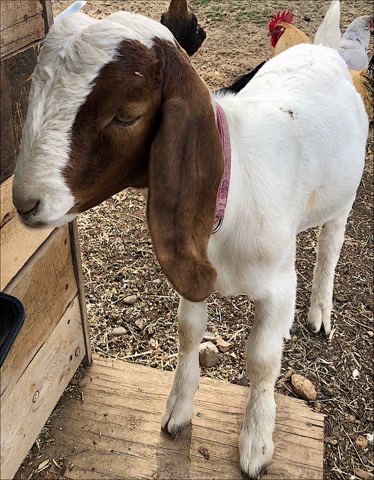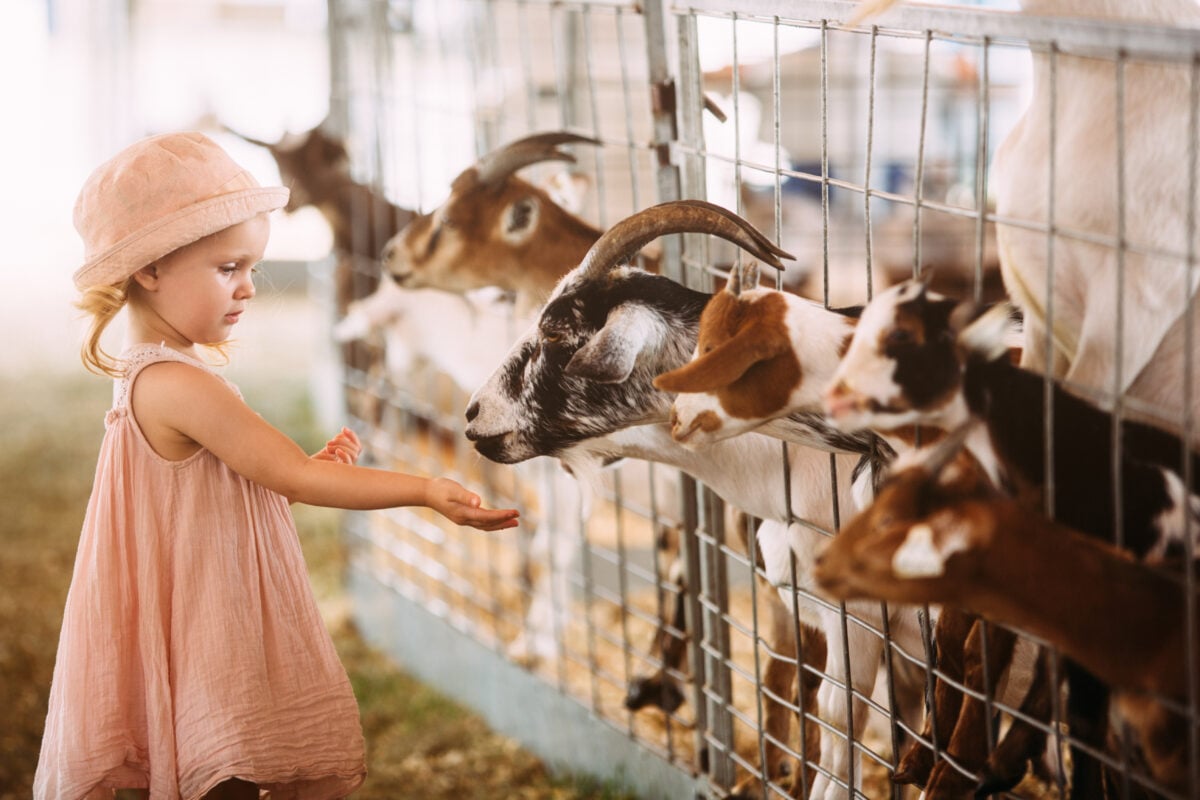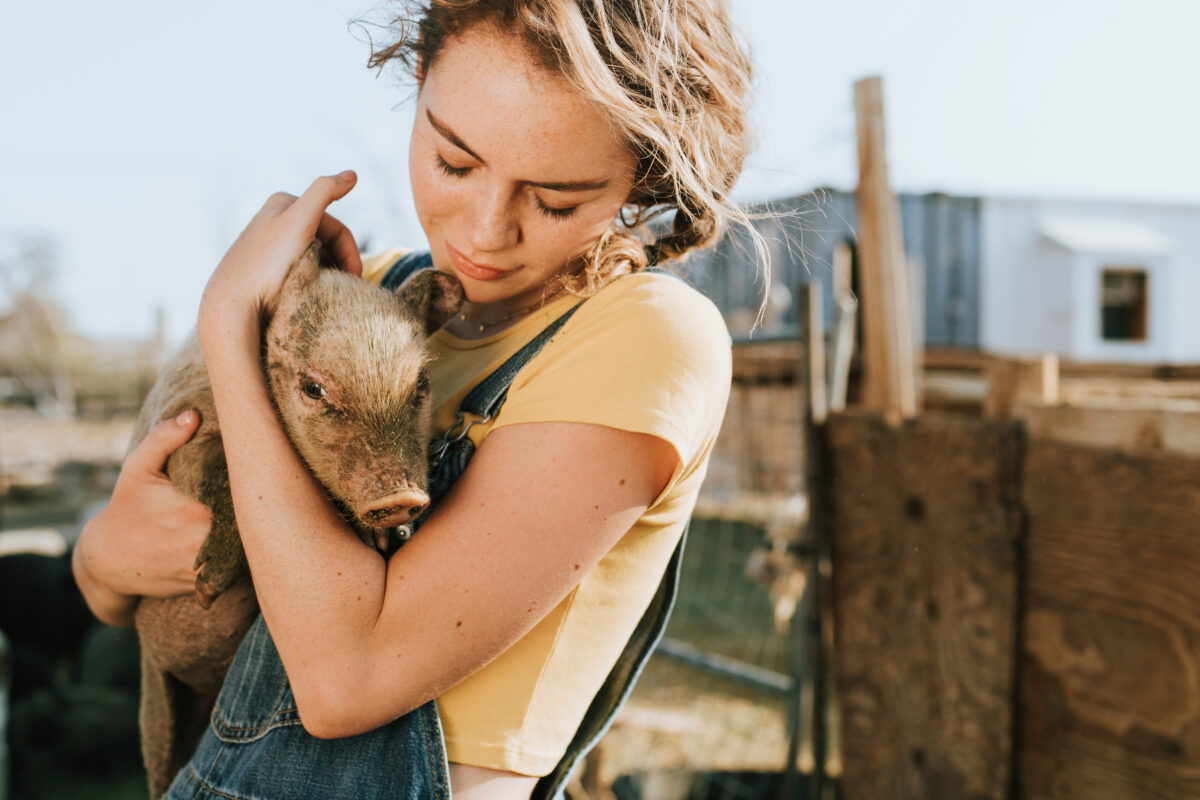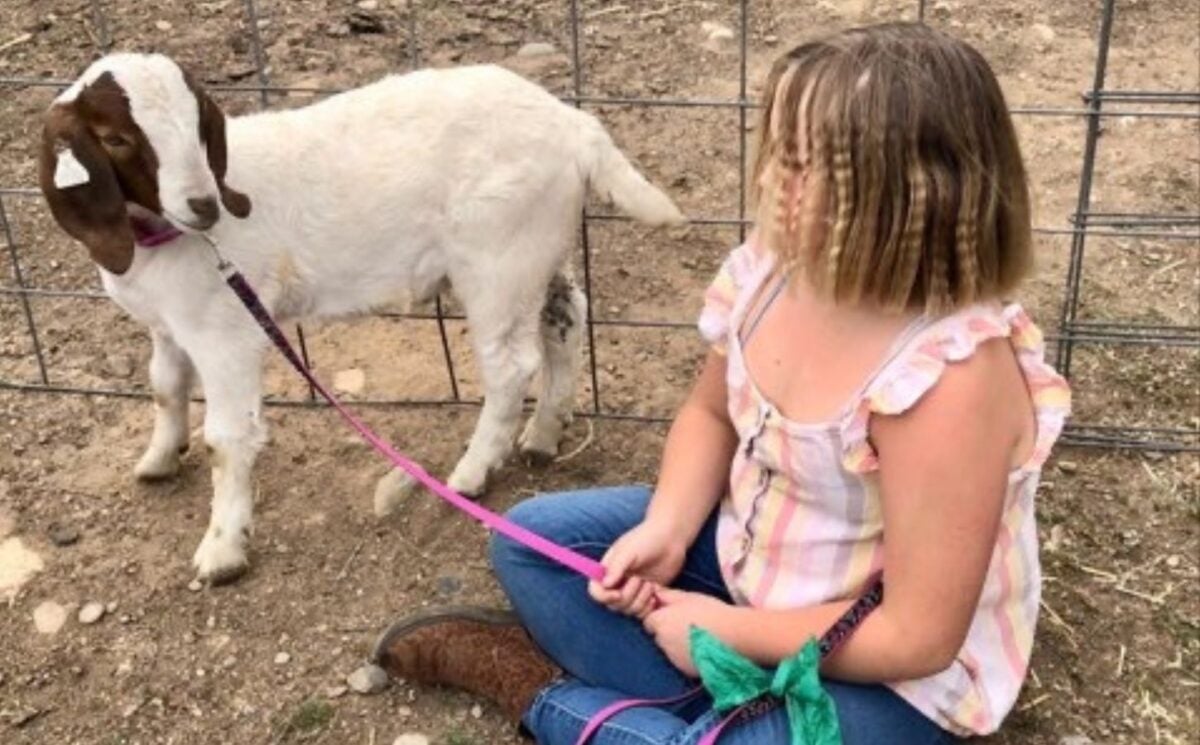California officials are countersuing a family who tried to save their goat from slaughter.
In 2022, Shasta District Fair sent law enforcement after Jessica Long and her nine year-old daughter for refusing to hand over Cedar the goat to be killed and barbecued. Long’s daughter became attached to Cedar, whom they had purchased at the livestock fair to raise as part of a youth program called 4-H.
After Cedar was seized, Long filed a lawsuit in federal court, claiming that her daughter’s constitutional rights had been violated.
Now the fair and other claimants have filed a countersuit through the California Attorney General’s Office. They claim that the girl violated the terms of her contract, which stated she must return the goat to be auctioned at the fair.
Here’s what you need to know about the case and the 4-H program.
Cedar’s story

Cedar, a white Boer goat, was seven months-old when he was purchased in April 2022 by Long for her daughter. He had the floppy brown ears that are typical of his breed. Boer goats, who are generally calm and gentle, can live as long as twenty years.
The family registered Cedar in the Junior Livestock Auction at the Shasta District Fair as part of 4-H – more on this later. Up until June 25, when he was auctioned off to Republican Senator and farmer Brian Dahle for USD $902, Cedar lived at the Long’s property.
The little girl fed and walked Cedar every day for three months, forming a close bond with him. By the time of the auction, she had already changed her mind about parting with Cedar.
Jessica Long offered to pay back any financial losses for removing Cedar from the auction. Dahle agreed to let Cedar live if he was sent to a farm where he would help with grazing back vegetation that posed a wildfire hazard.
But fair officials insisted Cedar had to be returned and slaughtered. To save his life, the Longs took him to a rescue farm in a different county. Fair officials and eventually officers from the Shasta County sheriff’s office drove hundreds of miles to track down Cedar.
They finally seized him on July 8 from from a property in Sonoma county. Long’s attorney Ryan Gordon has said that the seizure was illegal because the sheriff’s deputies only had a search warrant for an animal sanctuary in Napa where they originally believed the goat to be.
The deputies took Cedar back to Shasta county, where they had him killed. It isn’t known what happened to his body.
Why are Cedar’s owners suing the state?
Following the seizure of Cedar, Long filed a federal lawsuit against Shasta District Fair and Shasta county. The suit argued that tracking down Cedar was an “egregious waste of police resources.”
It also alleged they violated Long and her daughter’s 4th Amendment and 14th Amendment rights. These rights protect citizens from unreasonable searches and seizures, and ensure they are treated with due process.
Minors can back out of contracts without penalty, a right which Long’s daughter exercised. At the time that she decided she didn’t want Cedar to die, she still “owned” him.
As well as law enforcement allegedly seizing Cedar illegally, Long’s attorneys say that the county went against its duty to keep and care for Cedar. This duty was based on Cedar’s ownership still being in dispute. Instead of waiting for a legal resolution to this question, the county had a third party slaughter Cedar.
Long’s attorneys say that the county circumvented “the civil process” and killed Cedar in order to put an end to the issue.
What is the countersuit about?
The office of California Attorney General Rob Bonta has asked for Long’s lawsuit to be dismissed. It said the federal court does not have jurisdiction over the matter.
In the countersuit, Bonta’s team argues that Long should have to cover the legal costs of the officials she is suing. This is due to an indemnification clause in the contract Long’s daughter allegedly entered. Indemnity is supposed to provide protection from legal liability for damages or harm caused.
But one of Long’s attorneys, Vanessa Shakib, told Plant Based News that the indemnity clause is nothing more than standard language in the entry form to participate in the fair. “A simple kids club entry form is not carte blanche for government actors to violate the Constitution,” she said.
Gordon and Shakib believe this amounts to a “strategic lawsuit against public participation” (known as SLAPP). A SLAPP suit is intended to frighten someone into dropping their own lawsuit. “These baseless counterclaims have one purpose: to intimidate Mrs. Long and her daughter to either drop their case or face a hefty price tag,” said Shakib.
This goes against California’s anti-SLAPP legislation, intended to ensure citizens have the right to their day in court.
What is 4-H?

The 4-H program in which Long’s daughter initially participated is a national “youth development” initiative run by the US Department of Agriculture. The youth livestock program involves kids taking home an animal and raising them for auction and slaughter.
4-H was founded in 1912 for rural youth. It has always had a focus on equipping children with farming and homemaking skills – and the values that go with them. It has since grown to offer many different programs, including engineering, fitness, and financial literacy.
Why 4-H is problematic
Critics have pointed out that a key aspect of the program is to teach kids to see animals as products. This quashes the moral intuitions that children have about animal lives having value for their own sake. “By suggesting that animals may deserve mercy and that the people who raise them might not want them killed, the family broke a social contract,” wrote political philosophers Jan Dutkiewicz and Gabriel Rosenberg in Vox.
This is clear in the words of Mike Albiani, who advises the Future Farmers of America program in Elk Grove, California. “There are tears, but the tears are short-lived,” he told the Sacramento Bee. “We talk about that all through the process. It starts early at the parent meetings. As long as you reinforce that this is the purpose of the animal — if you reinforce that, and your peers give you support, it’s OK.”
The Sacramento Bee also reported that Ryan Gordon, who cofounded the nonprofit law firm Advancing Law for Animals with Shakib, said there are actually many cases like that of Long’s daughter. “Every year, the firm I work at gets calls from kids that want help, that are in these 4-H programs and they want out and are told they can’t,” he said.
Surrendering to sanctuaries

Not all of the stories of children who want to save their 4-H animals end as tragically as Cedar’s did. Increasing numbers of sanctuaries in the US are taking in animals surrendered by 4-H kids who have grown too attached to have them killed.
Rowdy Girl Sanctuary in Texas runs a Families Choosing Compassion (FCC) program. Families can seek sanctuary for the animals at Rowdy Girl or get help placing them in another sanctuary. This isn’t always possible, as not all local 4-H chapters allow children to surrender animals. The other purpose of FCC is to bring together families who regret giving up their animals for auction.
“We aim to instill a deeper awareness and appreciation of farm animals as unique individuals, worthy of our love and respect,” Rowdy Girl says on its website.






